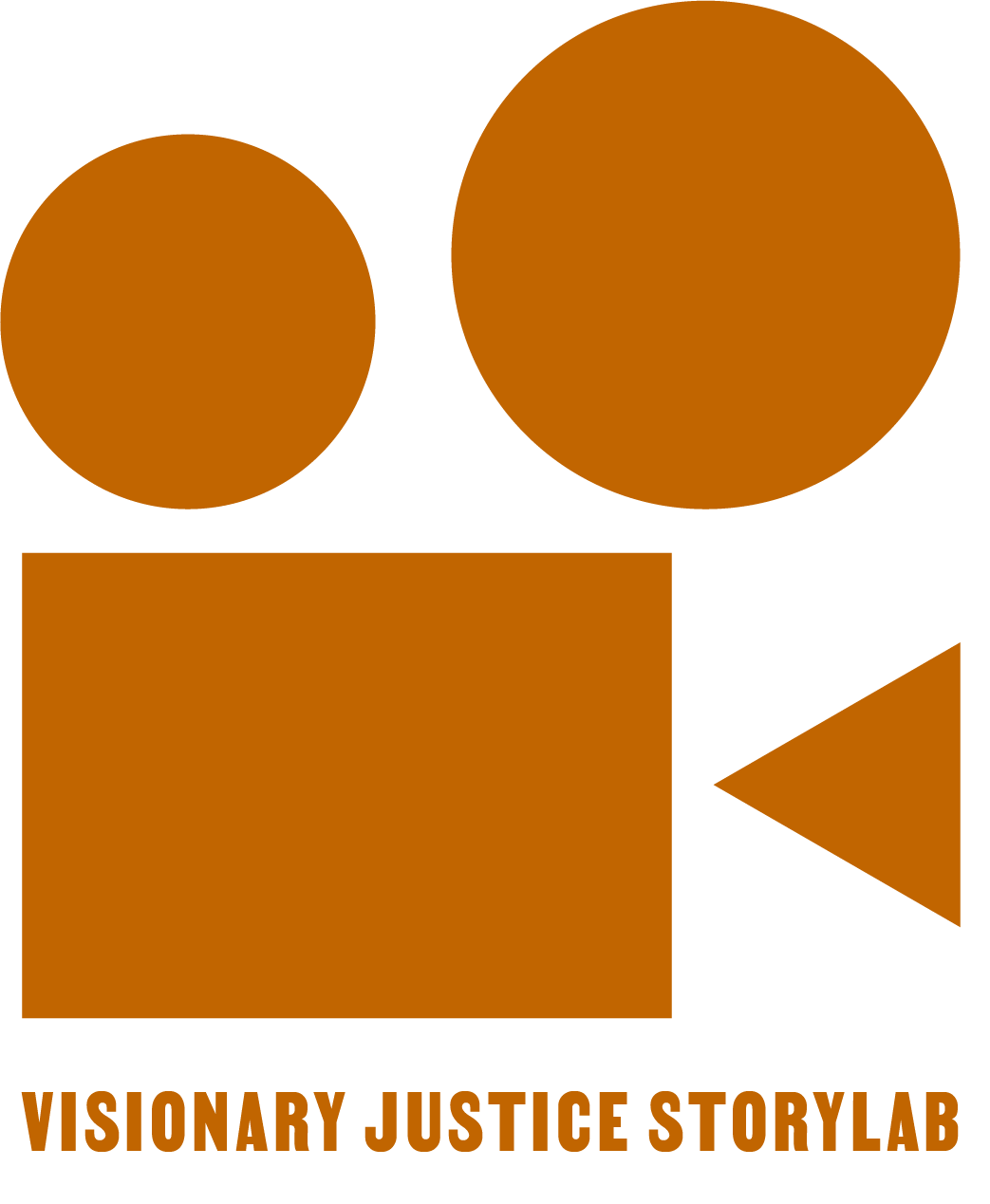A Shot That Changed Everything
By Mya-Breyana Morton
When I first applied to the Resisting Narratives of Erasure fellowship, I wasn’t sure what to expect. So many programs talk about uplifting marginalized voices, but very few actually follow through—especially when it comes to younger non-binary and women of color. This was the first opportunity that truly saw me. Not just as a filmmaker, but as someone with a story worth telling. Visionary Justice StoryLab didn’t just make space—they invested in me. And for that, I’m deeply grateful.
During the fellowship, BREATHE, a coming-of-age short film centered on anxiety, self-doubt, and self-acceptance. It’s a deeply personal story—one I’ve been trying to tell for over five years. The concept explores the internal emotional journeys we often experience in silence, especially as Black women. I wanted to make something that humanized those invisible battles and made space for softness, vulnerability, and healing.
Thematically, my work has always revolved around normalization and humanization—how we show up fully and authentically in our own skin, and how media can either support or erase that process. My goal is to challenge how we're seen and expand the emotional range of what’s considered "relatable" in Black storytelling. Through this project, I leaned into small, nuanced moments. The kind of moments that often get overlooked, but are deeply resonant for those of us who live them every day.
Like most independent filmmakers, I had to stretch every dollar. The grant from Visionary Justice helped us move forward, but the vision was bigger than the budget. We called in a lot of favors—friends who believed in the project, collaborators who offered equipment, and local venues that gave us access to locations. We faced casting delays and had to make creative compromises, like using one camera instead of two for coverage. Ironically, that limitation ended up being a blessing. Filming in tight spaces forced us to slow down and become more intentional about every frame. Sometimes limitations teach you how to focus on what really matters.
One of the most meaningful aspects of the fellowship was being surrounded by other storytellers with aligned missions. Hearing how other fellows were navigating their own creative challenges reminded me that I’m not alone in this. There’s a hunger for honest storytelling—and more importantly, there’s a community ready to support it. Being in this space gave me the affirmation I didn’t know I needed: that these stories are relevant, urgent, and worthy of being seen.
That validation has become fuel. Even when crowdfunding became overwhelming and exhausting, even when the obstacles piled up, I was reminded that I’m not just making content—I’m building connection. And that’s the point.
As I look ahead, my goal is to tell these kinds of stories full-time—on a larger scale and with deeper impact. I want to work with brands, studios, and organizations that understand the power of intentional, inclusive storytelling. I want to amplify voices that are often overlooked. And I want to keep creating work that helps people feel seen.
This fellowship marked a turning point. It gave me momentum, clarity, and most of all, permission—to trust my voice, to lead with heart, and to keep going. I’m walking away with more than a finished film. I’m walking away with a deeper sense of purpose and a reminder that when we resist erasure, we don’t just preserve stories—we breathe life into them.



